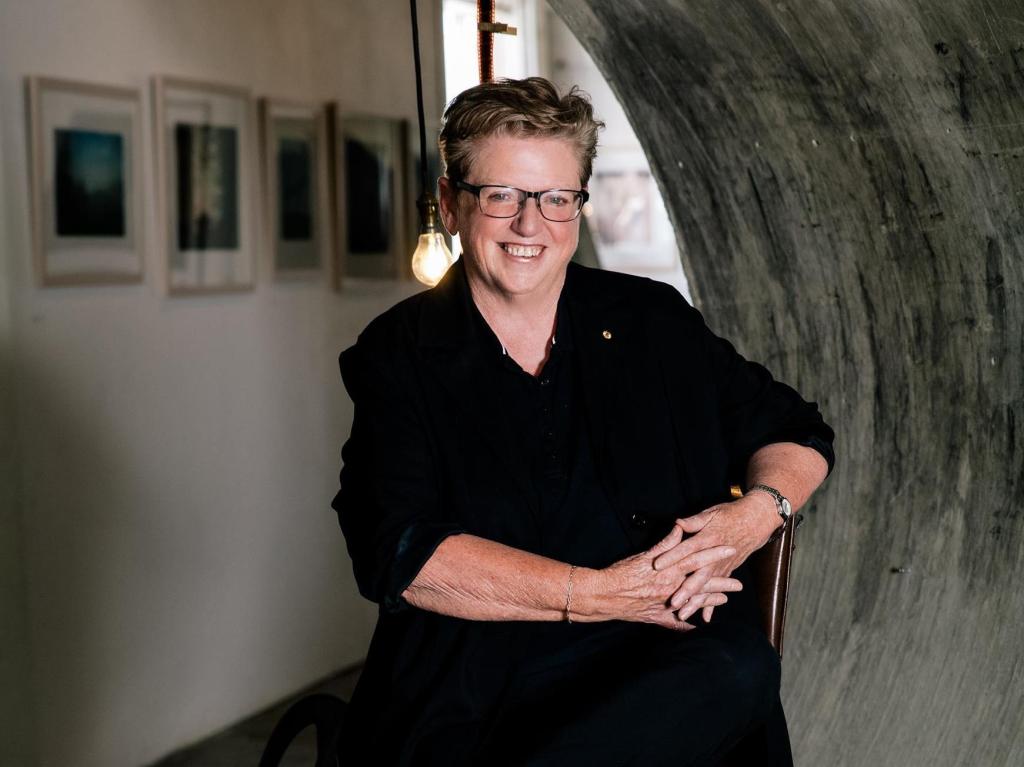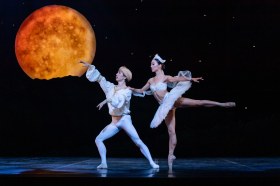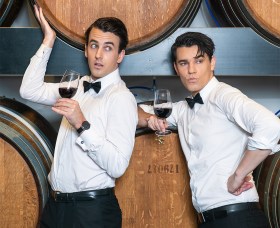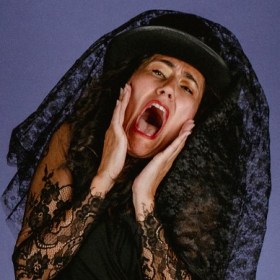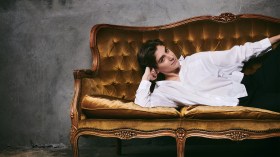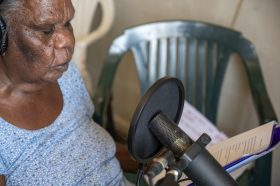Robyn Archer. Photo supplied.
Dancing on the Volcano takes its name from a 1938 German film, but the phrase has long been associated with this period’s extraordinary creativity, hedonism and counter-cultural daring in the face of profound poverty, crime and the rise of Nazism. Archer’s take, which made its debut at the 2016 Adelaide Cabaret Festival, is a 90-minute selection of songs from this milieu. It offers a window on interwar Berlin, and undoubtedly also reveals Archer’s knowledge and love for her subject. However, as entertainment it’s sometimes lacking – except perhaps for serious aficionados of Weimar Republic cabaret.
Dancing on the Volcano moves more or less chronologically from 1919, when World War I ended, to 1933, when Hitler seized power and many great composers and lyricists were silenced. Archer provided brief insights into this history between songs, and about the songs themselves. Most were sung entirely in English, but her commentary provided valuable context to music that’s largely unknown in Australia, even within artistic circles. Indeed it seems that considerable research is behind this show, at least in part by pianist, Michael Morley, according to some of Archer’s comments. He and accordionist George Butrumlis provided able, sensitive backing throughout the show.
It began with some bawdy songs reflecting Germans’ relief at war’s end. Most notably Kurt Tucholsky’s ditties about Luise and her rustling undergarments, and a woman who can’t sleep because of an unpleasant bedfellow. Through tone and gesture, Archer subtly conveyed their humour. Relief soon turned to anxiety about post-war poverty and crime, but the songs of the day that tackled this darkness treated it with an ironic lightness that obscures the shocking subject matter. Such as Bertolt Brecht’s Apfelboeck, about a boy who murdered his mother (for which Archer provided a surprising Australian postscript), and the instantly familiar Mack the Knife, from Brecht’s most famous collaboration with Kurt Weil, The Threepenny Opera. The fact that crooner Bobby Darrin successfully covered it shows just how readily this song’s sinister meaning is lost. Archer, backed by a distractingly complicated piano arrangement, sang the first verse in fine, expressive German, then continued in English.
Some might wish for more of the songs’ original language in Dancing on the Volcano. English is obviously invaluable in conveying their meaning to the audience, and Archer’s occasional slip into a regional English or Australian accent underscored how the songs’ subjects were often working class. Yet, despite some clever idiomatic translation, the original German’s poetry was lost. The atmosphere of those old Berlin cabarets, indeed the mystique that is at least partly why people on the other side of the world enjoy these songs decades later, was diminished.
Despite the show’s intellectual appeal and the trio’s undoubted talent, by mid-point the sum total of the songs’ actual or superficial lightness was approaching Morning Melodies gentility. Its middle section offered a bawdy song about a drunken sailor (with Australian connections) by Wilhelm Grosz, and a medley of his sentimental English-language songs written after he fled Germany and became Hugh Williams. There was the night’s other instantly familiar song, Friedrich Hollaender’s Falling in Love Again, which Marlene Dietrich sang in Der Blaue Engel – another sentimental number that, as Archer rightly pointed out, had a dark context. And Hollaender’s funny Kitsch Tango, which lampooned the fashion for syrupy songs (understandable as the Depression and Nazism descended). As a script this is fascinating stuff, but as entertainment it never quite succeeded in hitting home.
Until about two-thirds through, when Archer brought real emotional darkness to her performance, reflecting the reality in Berlin as the lights went out on creativity, diversity and partying until dawn. The one tune sung entirely in German, Hollaender’s Eine Kleine Sehnsucht (A Little Yearning) was delivered with unmistakable heartbreak, and the show’s mood changed. It became grim with Falladah, a song by Brecht and Hanns Eisler about a horse that’s butchered by a starving mob when it collapses, and Hollaender’s The Jews, which Archer concluded with quick, contemporary references to other sectors of society often blamed for today’s problems. It was the most overt moment in Dancing on the Volcano when the ills of a time and place that led to Nazism are echoed by contemporary anxieties.
Of course there was an encore, and of course it was upbeat: Brecht and Eisler’s satirically nostalgic Bilbao Song. Of course Dancing on the Volcano was a cut above a lot of cabaret seen in Melbourne. Yet despite an abundance of talent and meaning, its first half at least veered unexpectedly close to light entertainment.
Rating: 3 ½ stars ★★★☆
Dancing on the Volcano
Singer: Robyn Archer
Piano: Michael Morley
Accordion: George Butrumlis
9-11 July 2018
Fairfax Studio, Arts Centre, Melbourne
